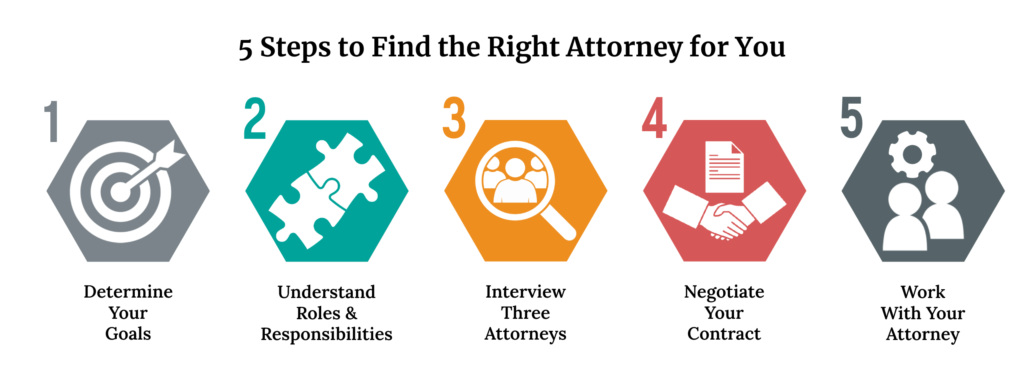Should You Consult an Attorney?

We asked ourselves that question when we evaluated our own case of harassment. We are not attorneys. So when it came time for us to consider hiring an attorney we were surprised when we were met with a complete lack of transparency. As a result, we had unrealistic expectations going in and we had to learn tough lessons the hard way. We want to share these with you so you don’t make the same mistakes we made.
There are a lot of attorneys advertising in the harassment and discrimination arena. And they say they can help you win your case. But winning a case may mean something different to you than to your attorney.
So when should you consider consulting an attorney? How do you find the right attorney? How much will it cost? What can you realistically expect your attorney to do on your behalf?

Reality Check
When you talk to people about your harassment experience, invariably some (or many) will say: “Sue them. You can get millions!”
Reality Check:
That is a fantasy. The United States is a litigious country, and yet the laws are set up to make suing your company one of the most difficult things an employee can do. The system is built to favor your company. The narrow conditions that must be met, the hoops you have to jump through, and the process you must navigate, are built to weed out, wear down, and wait out as many employees as possible. And it works. The process can take more time than you will ever expect (think years), your case will probably never see the inside of a courtroom, and what you walk away with could be far less than what you invested. To say nothing about the time, anxiety, and frustration it will cost you. Add to that, hiring an attorney is expensive. There are specific circumstances where consulting an attorney makes very good sense. But don’t expect dramatic courtroom battles and giant corporate payouts.
Assess Benefits and Risks
A good attorney knows the law and can leverage that knowledge to get their clients some protection and compensation.
Reality Check:
Do not expect your attorney to blaze a trail, go off script and scorch the earth for you. They want to get in and get out as quickly as possible. Less time for more money. Your attorney will most likely recommend a settlement because it is the quickest, and usually the best way to get a resolution of your case. That means a settlement offer, not a court case. Settling makes a lot of sense even if the total payout is less than if you wait it out. If you can’t come to a settlement agreement, it means a lot more time and government bureaucracies to navigate.
If you want more in your settlement than the standard boilerplate agreement, like changes to the company policy, limited NDA (nondisclosure agreement) terms, etc., you MUST represent yourself with your attorney, and push for it in the settlement.

Benefits of Consulting an Attorney
- They are experts in both your state and federal employment laws
- They can confirm you have a case in the eyes of the law
- They can give you confidence in your case
- They can level the playing field by negotiating against your company’s attorneys
- They can review all contracts, settlements, etc., so you can avoid loopholes and pitfalls
- They may relieve you from the emotional stress of “fighting,” so you can pursue more productive activities
- It changes the dynamic with your company: They may be able to resolve your case more quickly and for more money than if you go it alone

The Costs of Consulting an Attorney
- Costs money – the full financial cost may not be clear upfront
- You lose a level of control – you must surrender to the legal process
- Time investment – you are responsible for providing your attorney with a clear summary and documentation throughout the process
- Time investment – you need to manage your attorney and the time they spend on your case
- If you want more than the standard settlement agreement terms, you may have to argue your case with your attorney
- It is very expensive to change your attorney before your agreement is complete. Find the right one for you and your case – the one who will work best to meet your goals
Best Time to Consult an Attorney
During your company complaint process
- Your attorney can help you understand the law, determine what type of case you have, and give you your legal options
- After your company investigates and finds your harassment claims are valid, your attorney may draw up or review an agreement to ensure safe working conditions for you going forward
- Your attorney can negotiate your exit from the company if you can no longer work there (see more about constructive discharge HERE)
- Your attorney may ensure you are protected by creating or reviewing all settlement, severance, termination, and other legal agreements between you and your company
- Your attorney can give you legal options if you have been fired, demoted, or passed over for promotion as retaliation for making your complaint, or for any other type of retaliation.
If you file a complaint with the US Employment Opportunity Commission (EEOC)During your company complaint process
- Your attorney can represent you during interviews, the investigation, and all meetings
- Your attorney can mediate settlements
- Your attorney can review legal documents and settlements
If you get a Right to Sue Letter from the EEOC
- Your attorney can litigate your case in court
Anytime in the process
- Your attorney can negotiate a settlement
- Your attorney can review all legal documents, contracts, settlements, nondisclosure agreements (NDAs), termination and severance agreements
Determine How Much You Can Spend
Even though you are the victim of harassment, you have the burden and the costs for getting compensation, accountability, and protection from your company.
How far are you willing to go? This process can feel like quicksand if you aren’t careful. Know how much time, money, and effort you can spend ahead of time. There are no guarantees you will walk away with what you put in. Harassment can affect your physical, emotional and mental health. It can put pressure on your home life and relationships. It can strain your earning potential and financial security. Consider what you are willing to spend:
- Time – You will have to provide information and documentation; taking time away from family and other obligations
- Money – Cost of attorney’s fees and possible loss of income
- Stress – Emotional, mental, physical, relationship, financial, and career
See the Guide to NDAs, Contract Terms and More to Understand the Terms and Conditions that Impact Workplace Contracts

So, you’ve decided to consult an attorney. There are pitfalls when hiring an attorney – misaligned expectations, and a lack of transparency around costs, the process, and the time it takes to resolve your case.
Reality Check: The process takes time. Your attorney is not there to hold your hand. You are one of many clients. If you don’t like your attorney, it is very expensive to change attorneys without a severe penalty. Find the right attorney from the start, which will take work and due diligence on your part.
Determine Your Goals
Have a clear goal in mind. It is critical to communicate this to your attorney. It will keep you both on the same page from the start. Your goal can be anything from financial compensation, change to company policy, and more
Take some time to write down answers to the following questions:
- What is the best possible outcome for you?
- What do you NEED?
- What do you WANT?
- Determine if an attorney can help you meet your goals.
Understand Roles and Responsibilities
Use your attorney’s time wisely. Come prepared. Have clear expectations. Know your end goal. Know your “must-haves” for a settlement agreement. Have an outline of your case and supporting documentation available. Provide context and any losses you have suffered as a result of the harassment and discrimination you experienced.
More reading? Check out this article from: What You Should Expect From Your Lawyer
You:
- Represent yourself
- Be clear about your goals and desired outcome
- Ask questions
- Work with your attorney
- Arm your attorney with the right information

Attorney:
- Represents you
- Communicates your interests to the company/EEOC/court
- Negotiates and reviews settlement offers
- Litigates as your legal representative once you have a “Right to Sue” letter from the EEOC
- Works within the law
Interview Three Attorneys
Interview at least three attorneys. Even with a recommendation from a friend or colleague, it is important to find the right attorney for you. You have a better sense of your case and what you can reasonably expect. This person will be representing YOUR case. Find someone who works well with you.
Prepare for your attorney consultation.
- Prepare a summary of your case so you can hit the major points and answer questions.
- Tell them what your goal is and what the best possible outcome would be.
- Ask: What kind of case do I have?
- Ask: Is my goal something you can help me achieve? If not, what can I expect? What can you do? What are our best options?
- Ask: How much will getting to that goal cost? What is your fee?
- Ask: How much time will this take?
- Ask: Should I file a complaint with the EEOC? If not now, then when?
- Ask: How many cases do you handle like mine? What is the outcome of most of those cases?
Find attorneys in your area. Beyond the attorneys advertising online, here are some other resources that may help you find attorneys in your area:
- LegalMatch.com (includes attorney ratings)
- NOLO.com
- The National Women’s Law Center Fund
Negotiate Your Contract
Many attorney agreements will be for a specific task or a series of tasks. Fee structures change based on those tasks. It is important to review your attorney contract. The time to negotiate changes to the contract is BEFORE you sign it.
- See the Guide to NDAs, Contract Terms and More to Understand the Terms and Conditions that Impact Workplace Contracts
- Your attorney contract should specify both the work and fee structure for that work.
- Do the math. Your attorney’s payout, with fees and a percentage of the settlement, may be bigger than your check.
- Consider hiring your attorney for specific jobs based on where you are in the process. For example: one agreement for negotiating settlements, another agreement for the EEOC investigation, and another agreement for litigation.
- Consider adding an expiration date to your client/attorney agreement, so that once that date has passed you have the option to move to another attorney or sign a new contract with your existing attorney. This can be easy to build in, as EEOC claims can only be made within a specific timeframe [see more info HERE].
Attorney Fees
Fees can be as complex as anything else in this process. Here are some articles we found helpful:
Work with Your Attorney
Once you have your attorney, work with them. You are a team. Trust their expertise regarding the law. They have the benefit of experience.
- Your attorney is hired by you, to represent you.
- Be diligent, ask questions, set expectations. This is your case.
- Be patient – working with an attorney is a process. Yours is not their only case.
- It is in your best interest to encourage, manage and follow-up with your attorney.
- It is your responsibility to supply your attorney with the best tools for the best possible outcome.
- Good note-taking is key. Help your attorney and your wallet, by providing a summary, table of contents, and context to your documentation.
- Trust your expertise in your case. Your attorney is an expert in the law, but you are an expert in your case and your experience. They may not know or may forget key details. They won’t know the corporate culture, who is who, or the nuances, dynamics and costs you have incurred, like you will.
If Your Case is Not Resolved
Your attorney may be unable to negotiate a settlement with your company to your satisfaction.
If you find yourself at this crossroad, you have a few more options:
- You can find a new attorney to take up your case for settlement
- You can file a complaint with the EEOC if you still fall within filing deadlines [see more information HERE]; you can represent yourself or you can have your attorney represent you in this process
- You can drop your complaint
The first two choices will require a re-commitment to your case. You will be investing a lot more time, energy and money for a resolution that may or may not be resolved to your satisfaction.
Deciding to drop your complaint without an agreement or compensation may be a difficult decision to make, but it may be your best option to limit further costs and trauma.
Regardless of your choice, take time to take care of your mental and emotional health:
13 Ways to Manage Stress From Workplace Harassment
Being mindful of how harassment impacts your overall well-being can help you manage and reduce the impacts on your mental, physical and emotional health as you navigate this process.
Share your experience and find recommendations in the Navigating Workplace Harassment and Discrimination Facebook Group.
Get the Latest Buzz
Subscribe to our regular newsletter for the latest news and actions. Your info and time is safe with us!
The Latest News
- Giving Tuesday: Keep Resources FreeReading Time: < 1 minuteMore than 20,000 people have accessed The Wolf and The Bee’s resources. Donate to keep these resources free and accessible.
The Latest Blog
- 5 Workplace Red Flags You Shouldn’t IgnoreReading Time: 4 minutesWorkplace harassment assumes many guises, Identifying when your workplace is unsafe and unhealthy is essential. Here are five workplace red flags you should never overlook.



